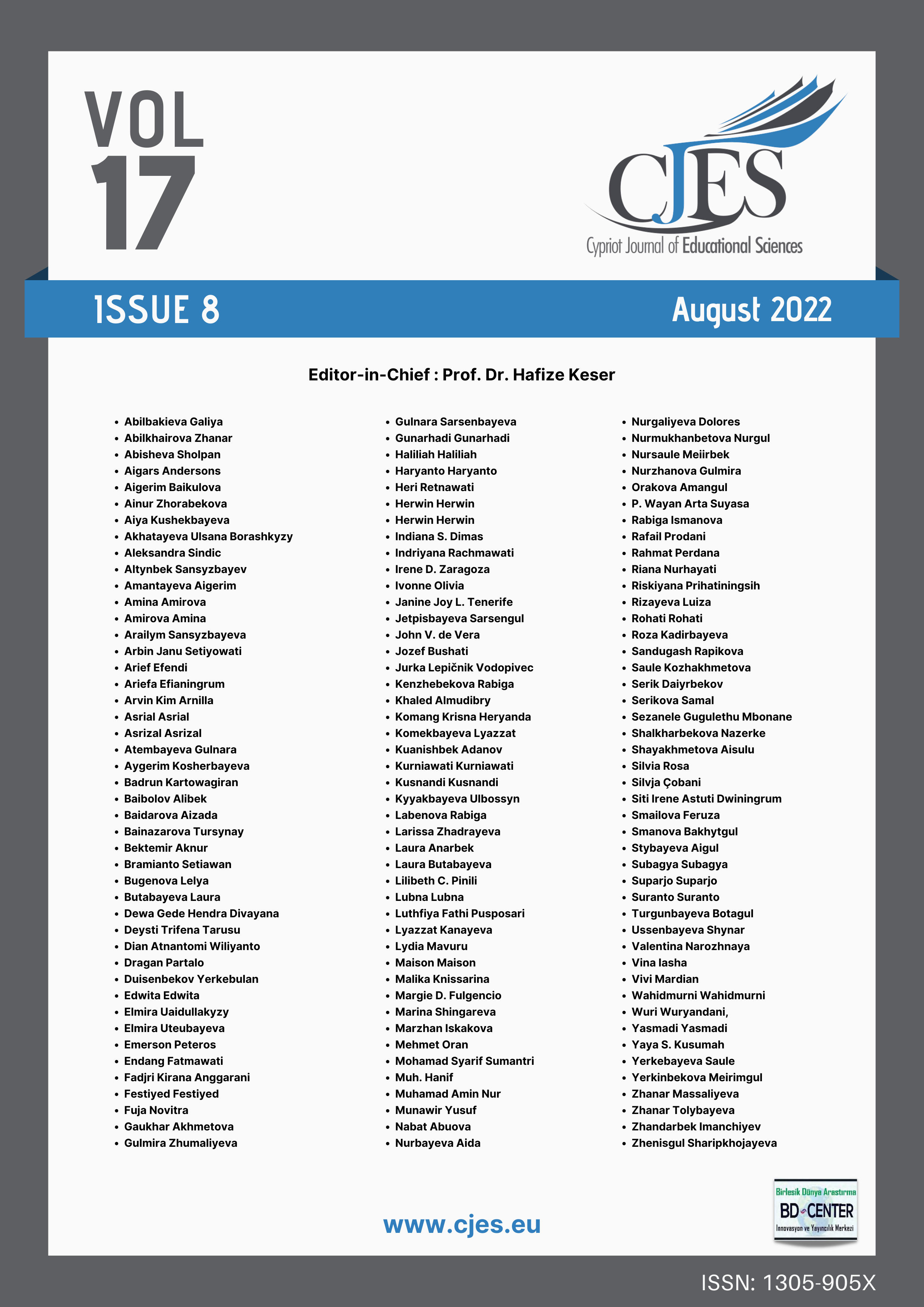Opinions of visually impaired school students about social communication processes
Main Article Content
Abstract
The aim of this study is to determine the problems and expectations of vis-ually impaired adult school students in the field of social communication. Within the scope of this general purpose, it was carried out with 30 visually impaired adults in the fall term of 2021-2022. It was carried out with school students studying at the school and working at the same time. The research was designed in accordance with the qualitative research design for tailless analysis of data. In the December research sample, there are 30 school students determined from the universe by the purposeful sampling method. Data were collected with social communication interview ques-tions prepared by the researcher. Decontamination analysis was performed for detailed analysis of the redial data. The result of this research is that visually impaired adults see disability as a limitation. It is defined as re-striction in social relationships, restriction from doing things, restriction from individual activities. It has been concluded that disabled individuals stay away from communication in their professional lives, are excluded because they prevent the distribution of work, and this situation has negative consequences.
Keywords: visually impaired, adult, school students, social area, cultural values, problems
Downloads
Article Details

This work is licensed under a Creative Commons Attribution 4.0 International License.
Cypriot Journal of Educational Sciences is an Open Access Journal. The copyright holder is the author/s. Licensee Birlesik Dunya Yenilik Arastirma ve Yayincilik Merkezi, North Nicosia, Cyprus. All articles can be downloaded free of charge. Articles published in the Journal are Open-Access articles distributed under a CC-BY license [Attribution 4.0 International (CC BY 4.0)].
Birlesik Dunya Yenilik Arastirma ve Yayincilik Merkezi (BD-Center)is a gold open-access publisher. At the point of publication, all articles from our portfolio of journals are immediately and permanently accessible online free of charge. BD-Center articles are published under the CC-BY license [Attribution 4.0 International (CC BY 4.0)], which permits unrestricted use, distribution, and reproduction in any medium, provided the original authors and the source are credited.

